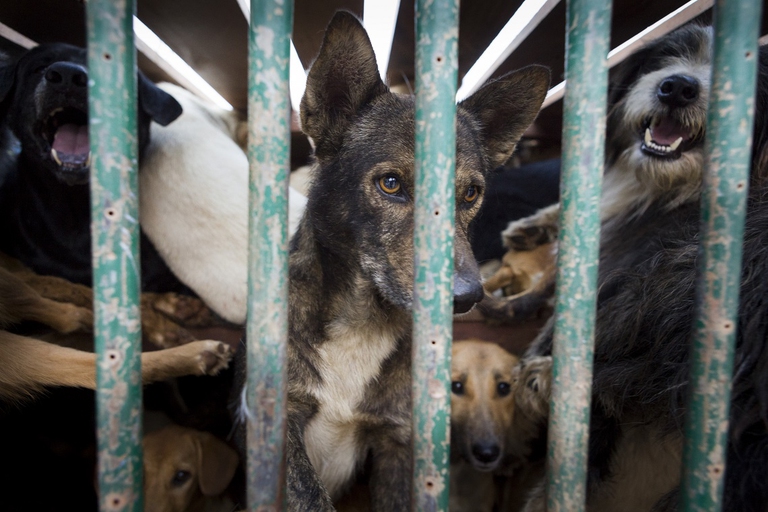
The South African government is clamping down on the controversial multimillion-dollar lion-breeding industry, thanks to pressure from activists.
The investigation agency has listed animal abuse as a class A felony and started collecting data on this type of crime.
In the United States animals will be safer from now on since the FBI in January 2016 decided to compare animal abuse to class A felonies such as murder, assault, drug trafficking and arson.
According to the Washington Post, this epochal change should be partly attributed to Mary Lou Randour, psychologist and writer, the Program Director of Psychologists for the Ethical Treatment of Animals and a consultant to the Doris Day Foundation, an animal protection association that has long been fighting for this recognition.
“We know that animals suffer and enjoy complex emotional lives – Mary Lou Randour said. – In most societies it’s recognised that creatures that are dependent on others, whether the elderly or children or animals, need to be protected”.
The FBI defines animal abuse as “intentionally, knowingly, or recklessly taking an action that mistreats or kills any animal without just cause, such as torturing, tormenting, mutilation, maiming, poisoning, or abandonment” and identified four types of cruelty.
Simple or gross neglect, intentional abuse and torture, organised abuse (like dog and cock fighting) and animal sexual abuse. Punishments for these offences have changed and the same goes for the way they are monitored: the FBI now uses the same methods and care used to investigate more serious crimes.
Data related to the crimes against animals are now added to the National Incident-Based Reporting System (NIBRS), the database used by the FBI to register national crimes. It is proven that those who mistreat animals “train” to commit cruelties towards human beings as well.
After a four-year study the Chicago Police Department demonstrated that 65% of the people arrested for crimes against animals also committed offences against human beings. Collecting data on animal abuse can help the FBI identify violent individuals and potential killers.
Siamo anche su WhatsApp. Segui il canale ufficiale LifeGate per restare aggiornata, aggiornato sulle ultime notizie e sulle nostre attività.
![]()
Quest'opera è distribuita con Licenza Creative Commons Attribuzione - Non commerciale - Non opere derivate 4.0 Internazionale.
The South African government is clamping down on the controversial multimillion-dollar lion-breeding industry, thanks to pressure from activists.
Every year, African straw-coloured fruit bats migrate to Kasanka National Park from the Democratic Republic of Congo to pollinate and feed on wild fruits.
Tuna recovers while the Komodo dragon falls into the endangered list due to climate change. Sharks and rays are also at risk because of overfishing.
Kenya’s first National Wildlife Census reveals that there are dangerously few specimens remaining of several iconic species, including the black rhino.
Animal Equality reveals the brutality of Europe’s pig meat industry and illegal activities on farms for which many perpetrators haven’t yet been punished.
Through stories of encounters between humans and animals, Our Wild Calling offers a way out of an age of solitude. We speak to author Richard Louv.
Considered useless, billions of male chicks are killed every year by the egg industry using cruel methods. But consumers can demand more humane practices.
In Australia, more and more platypuses are getting caught in plastic waste. Efforts to protect this species need to be increased.
In Mexico, the lives of millions of farmed animals could potentially change for the better if a new law that aims to protect them is approved.










